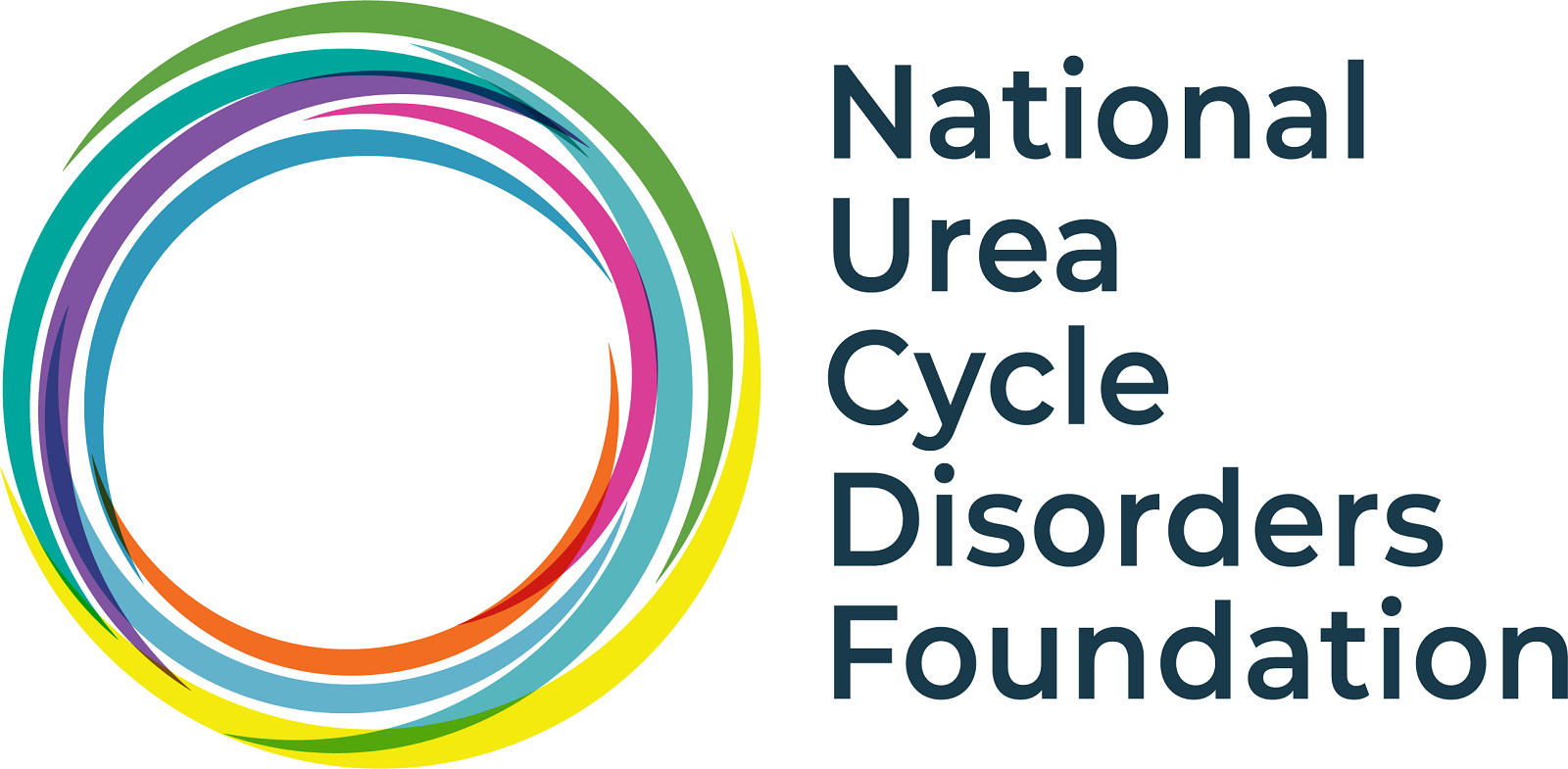Longitudinal Study for UCDs
5101: Longitudinal Study of Urea Cycle Disorders
(List of all UCD Consortium Research Centers listed below)
Status: Recruiting
Summary:
Please Note: The Rare Diseases Clinical Research Network will make every effort to enroll all the patients possible but cannot make any guarantees of enrollment in a particular study.
Background:
The purpose of this study is to conduct a longitudinal investigation of the natural history, morbidity, and mortality in people with urea cycle disorders (UCD). A longitudinal study is a research design in which the same subjects are observed repeatedly over a period of time. The study will look at how people with a UCD grow and develop over time and how often they get sick.
The research questions are:
- What is the prevalence of specific morbid indicators of disease severity, including hyperammonemia, developmental disabilities, and various long-term kidney and liver effects? What is the fatality rate associated with the various forms of UCD?
- What are the correlations between various biomarkers and disease severity and progression?
- What is the safety and efficacy of currently used and new UCD therapies?
About this Study
This is a longitudinal study of approximately 555 individuals with urea cycle disorders. Those participating in this study will be evaluated every three to twelve months, depending age and time of diagnosis. Participants two years of age and younger that were diagnosed with UCD within the first four weeks of life will be evaluated every three months. Those who are over two years of age or were diagnosed after four weeks of age will be evaluated every six months. Participants older than 18 years of age or who have had liver transplants will be evaluated once every year. The first study visit will take place at one of the UCDC clinical sites (see the list of participating sites below). Follow up visits can be conducted with the participant’s local metabolic physician. For each visit, you will be asked to:
Keep a diet log for three days and talk to a dietician about what you eat.
Have a physical exam.
- Fill out a feedback form about your life.
- Give blood (1 to 2 teaspoons)
Give a urine sample (some visits)
Your medical records will be reviewed from your local doctor’s office so that information can be collected about your medical history. Neuropsychological tests may be performed to keep track of intellectual development. The neuropsychological test includes exercises, games and quizzes. These help measure your intelligence, attention span, language skills, visual organization, memory, and learning abilities.
Targeted Enrollment
To be eligible to participate, you must be an individual with one of the following:
- NAGS Deficiency
- CPS I deficiency
- OTC deficiency
- AS deficiency (Citrullinemia),
- AL deficiency (Argininosuccinic Aciduria, ASA)
- ARG Deficiency (Hyperargininemia)
- HHH Syndrome or ORNT Deficiency
- CITR Deficiency (Citrullinemia Type II)
- or urea cycle disorder highly likely/diagnosis pending
You are not eligible to participate if you have:
- Hyperammonemia caused by another disorder other than UCD.
- Rare and unrelated serious comorbidities (e.g. genetic syndrome effecting brain development, such as Down Syndrome, intraventricular hemorrhage in the newborn period and extreme prematurity (<1500 g)
How to Participate:
In order to participate in a study, you must personally contact the study coordinator of any of the participating institutions by phone or by e-mail. Please use the information below to inquire about participation.
- The Children's Hospital Colorado, Aurora, Colorado
Renata Gallagher, MD, PhD
Study Coordinator: Curtis R. Coughlin II, MS, CGC
Phone 303.724.2353
- Children's National Medical Center, Washington, DC
Nicolas Ah-Mew, MD
Study Coordinator: Kara Lord, MS
Phone: 202-476-6216
E-mail: klord@cnmc.org
- Texas Children’s Hospital/Baylor College of Medicine, Houston, TX
Sandesh Nagamani, M.D., Brendan Lee, MD, PhD
Study Coordinator: Mary Mullins RN, BSN
Office: 832.822.4263
E-mail: mullins@bcm.edu
- Rainbow Babies and Children's Hospital, Cleveland, OH
Shawn McCandless, MD
Study Coordinator: Audrey Lynn, RN
Phone: 216.844.7124
- University of Minnesota, Amplatz Children's Hospital, Minneapolis, MN
Susan Berry, MD
Study Coordinator: Sara Elsbecker, MS, RN, CPNP
Phone: 612-626-5275
E-mail: selsbeck10@umphysicians.umn.edu
- Children’s Hospital of Philadelphia, Philadelphia, PA
Marc Yudkoff, MD
Study Coordinator: Irma Payan, RN, PNP
Phone: 215.590.6236
E-mail: payan@email.chop.edu
- Icahn School of Medicine at Mt. Sinai Hospital, New York, NY
George Diaz, MD, PhD
Study Coordinator: Nina Schager
Phone: 212.659-1477
- UCLA Medical Center, Los Angeles, CA
Derek Wong, MD
Study Coordinator: Naghmeh Dorrani, MS, CGC
Phone: 310.825.8084
E-mail: ndorrani@mednet.ucla.edu
- The Hospital for Sick Children, Toronto, Ontario
Andres Schulze, MD, PhD, FRCPC
Study Coordinator: Liora Caspi
Phone: 416.813.7654 x228027
- University Children's Hospital, Zurich, Switzerland
Mattias Baumgartner, MD
Tamar Stricker, MD
Study Coordinator: Ursin Sporri, MSc
Phone: +41 44 266 7310
- Children's Hospital Boston, Boston, MA
Susan Waisbren, PhD
Harvey L. Levy, MD, Co-Investigator
Study Coordinator: Vera Anastasoaie
Phone: 617.355.7346
E-mail: Vera.Anastasoaie@childrens.harvard.edu
- Oregon Health & Science University, Portland, Oregon
Cary Harding
Study Coordinator: Julie Martin, MS, RD
Phone: 503.494.5313
- Seattle Children's Hospital, University of Washington School of Medicine, Seattle, Washington
J. Lawrence Merritt, II, M.D.
Study Coordinator: Linnea Brody, BS, MPH
Phone: 206.987.3012
E-mail: linnea.brody@seattlechildrens.org
- Centre for Pediatric and Adolescent Medicine, Heidelberg. Germany
Georg F. Hoffmann, Principal Investigator
Peter Burgard, Co-Investigator
Stefan Koelker, Co-Investigator
Friederike Hoerster, Study Coordinator
Phone: ++49-6221-5639302
Study Principal Investigators:
Mark Batshaw, MD and Mendel Tuchman, MD
Children's National Medical Center
